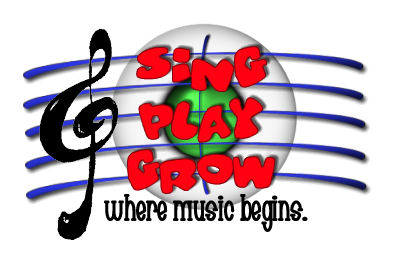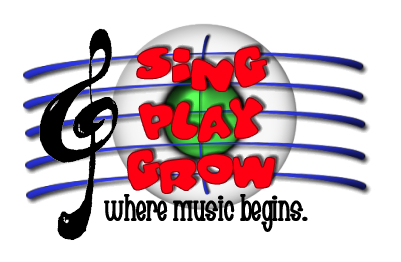 Here are answers to some Frequently Asked Questions.
Here are answers to some Frequently Asked Questions.
What is the program philosophy?
Our classes are based on the research of both Music Learning Theory and music therapy developmental principles. Early childhood is a critical time for brain development and learning. In regards to music learning, early exposure to a rich variety of musical experiences greatly influences the extent to which an individual will be able to understand, appreciate, and achieve in music as an adult. Children learn music very similarly to how they learn language. They are exposed to language by first listening to and then experimenting with language sounds through babble. Children have many years of informal exposure to language before learning to read and write. This is the same for music learning: children need informal exposure to a variety of music and opportunities for experimentation with musical sounds before they can effectively participate in formal music instruction, reading musical notation and creation of their own music.
In addition to music learning, the Sing Play Grow program incorporates music therapy ideology, as well. Beyond increasing musicality, our classes are also designed to: develop body awareness, fine, and gross motor skills through movement activities and instrument play; reinforce beginning speech and language processes; and provide opportunities for creativity, imaginative play, and active socialization among peers, caregivers and teachers. In addition, we have additional training and experience in working with children with special needs and greatly value an inclusive classroom environment.
What happens in a typical class?
Teachers sing and chant using a variety of different tonalities, modalities and meters. Age-appropriate movement activities are paired with the music and props/simple rhythm instruments – such as bean bags, egg shakers, and scarves – are incorporated as a means for imaginative play and motor development. Parents attend classes with their child to provide a familiar adult model and allow for constant individual interaction.
Why don’t you use traditional children’s songs?
Most “traditional” children’s songs are in either major or minor and very few incorporate unusual meters. We aim to provide musical exposure that augments what children may be experiencing within other environments. Additionally, we use many songs & chants without words, since – when songs & chants are presented with text – children tend to focus on the words, rather than the musical content.
I am worried that my child does not seem to be participating in class. What should I do?
Don’t worry, your child will participate when he or she is ready. Some children learn best by watching and silently absorbing what happens in class. Observing rather than participating is perfectly normal and does not indicate a child’s ability or interest level. Children are always learning through exposure. It is important to allow a child to experience music in his/her way, rather than to force participation; forcing a child to participate may cause a child to resent music rather than to enjoy it.
Do you have a question not addressed here? Contact us today and we would be happy to answer it!

Leave a reply